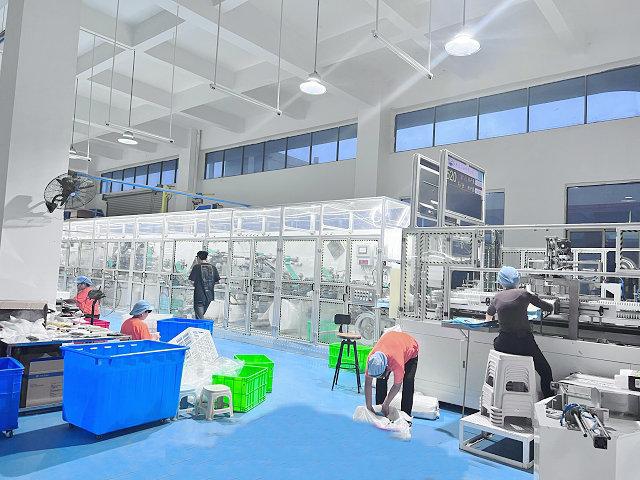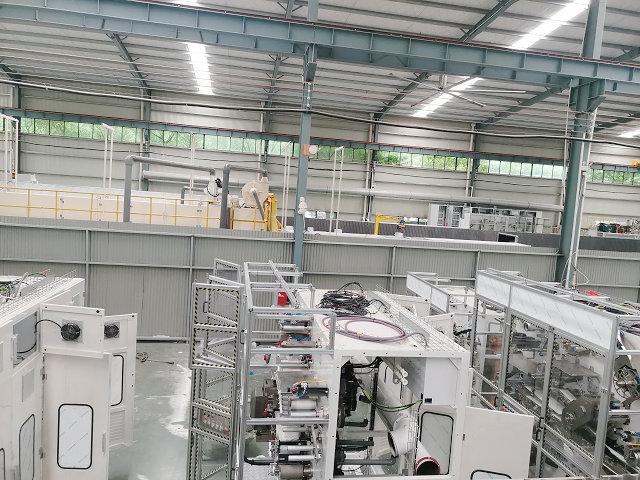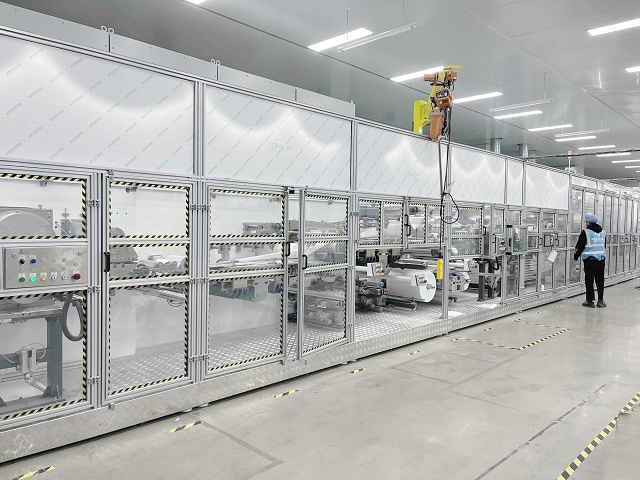Author:Haina Machinery Factory FROM:Diaper Machinery Manufacturer TIME:2024-12-20
As the demand for eco-friendly and sustainable parenting solutions grows, many parents are turning to cloth diapers as an alternative to disposable options. However, one common question arises: can diaper machines effectively handle cloth diapers? This article explores the capabilities of diaper machines concerning cloth diapers, examining their functionality, benefits, and potential limitations. By understanding how these machines work and their compatibility with cloth diapers, parents can make informed decisions about their diapering choices.

Diaper machines are designed to simplify the process of diaper changing and disposal. They typically automate aspects of diaper management, such as sealing, storing, and sometimes even washing. While most diaper machines are primarily marketed for disposable diapers, the mechanics behind these devices raise questions about their efficacy with cloth diapers. To determine if diaper machines can handle cloth diapers, it’s essential to understand their design and function.

Most diaper machines operate on a straightforward mechanism that involves folding, sealing, and storing used diapers in a hygienic environment. The machines often utilize a bagging system that contains odors and keeps bacteria at bay. When it comes to cloth diapers, the process is different. Cloth diapers need to be washed and sanitized rather than simply sealed away. This fundamental difference in handling raises concerns about whether diaper machines can adequately accommodate cloth options.

One major challenge with using diaper machines for cloth diapers is the size and absorbency of the fabrics. Cloth diapers vary significantly in design, from all-in-ones to pocket styles, and their bulkiness may not fit well into traditional diaper machines. Additionally, the absorbent materials used in cloth diapers can retain moisture, which may lead to odor issues if not properly washed. Many diaper machines are not equipped to manage the washing and drying process required for cloth diapers, limiting their functionality in this area.
Despite the challenges, there are numerous benefits to using cloth diapers. They are often more cost-effective in the long run, environmentally friendly, and healthier for babies’ skin. Cloth diapers also come in a variety of styles and materials, allowing parents to choose options that best suit their needs. While diaper machines may not be able to handle the washing of cloth diapers, parents can still benefit from their use by managing the disposal of waste effectively when transitioning between cloth and disposables.
When dealing with cloth diapers, hygiene is a significant concern. Cloth diapers must be washed thoroughly to eliminate any bacteria or odors. Many diaper machines do not provide a suitable environment for this level of cleanliness. If parents choose to use a diaper machine, they should ensure that they have a reliable washing routine in place. This might involve rinsing the diapers before placing them in the machine or using a separate washing system altogether.
For parents committed to using cloth diapers, several alternatives exist that can complement or replace the use of diaper machines. Wet bags, diaper pails, and dedicated cloth diaper washing systems provide efficient solutions for managing cloth diapers. These alternatives allow for better sanitation and can handle the unique needs of cloth diapering without the limitations of standard diaper machines.
Investing in cloth diapers can lead to substantial savings over time. While the initial cost may be higher than disposable diapers, cloth options can be reused for multiple children, making them a more economical choice in the long run. Parents interested in sustainability and reducing their carbon footprint will find that cloth diapers align with these values, further justifying their investment.
The environmental impact of diapering choices is increasingly becoming a priority for many families. Disposable diapers contribute significantly to landfill waste, taking hundreds of years to decompose. In contrast, cloth diapers are reusable and much less harmful to the environment when properly cared for. By using cloth diapers, parents can significantly reduce their family's ecological footprint while enjoying the benefits of a more sustainable approach to diapering.
In summary, while diaper machines offer convenience for managing disposable diapers, they are not ideally suited for cloth diapers. The differences in handling, washing, and hygiene requirements present challenges that most diaper machines are not equipped to address. However, cloth diapers provide numerous benefits, including cost-effectiveness, environmental sustainability, and health advantages for babies. For parents who choose cloth, utilizing appropriate alternatives for management and care is crucial. Ultimately, understanding the limitations of diaper machines can help parents make informed decisions that align with their parenting values and lifestyle.
